#bogue chitto
Explore tagged Tumblr posts
Text

Excerpt from this story from Inside Climate News:
On a clear, hot summer afternoon along the Bogue Chitto creek at Walker’s Bridge Water Park in southern Mississippi, Noah Devros dives into the murky water with a flashlight and cheap plastic dive mask. He emerges holding a small turtle.
Devros is a graduate student and researcher from the University of Southern Mississippi, and he’s working to tag and inventory the Pearl River map turtle, which in July was listed as “threatened” under the Endangered Species Act. The rule effectively makes it illegal to harm the animals in any way.
Armed with these new protections, this turtle could be the catalyst for halting a huge and controversial engineering project upriver in Jackson, Mississippi, known locally as “One Lake.”
Devros weighs and tags the map turtle before placing her back into the sand.
“They’re really charismatic,” said Devros, adding that the species is important to the local ecology; they eat invasive clams and clean the water by consuming algae.
The Pearl River map turtle, named after the one place it calls home and the maplike details on its back, relies on the running waters of the Pearl River basin in Mississippi and Louisiana to eat, nest and live.
But upstream, the U.S. Army Corps of Engineers has put forward a plan to reduce flooding from the Pearl River in Jackson. The plan—one of four flood-control proposals being considered by the agency—would dredge and widen a section of the Pearl and build a new dam across the river, creating an artificial lake spanning roughly 1,700 acres.
Scientists and environmental groups warn that One Lake would be devastating for the map turtle, flooding beaches the species depends on for nest-building and wiping out food sources along the Pearl’s riverbed. Critics also say the project could have far-reaching economic impacts beyond Jackson, threatening tourism and other industries downstream.
42 notes
·
View notes
Text
The schooner Clotilda (often misspelled Clotilde) was the last known U.S. slave ship to bring captives from Africa to the United States, arriving at Mobile Bay, in autumn 1859[1] or on July 9, 1860,[2][3] with 110 African men, women, and children.[4]
U.S. involvement in the Atlantic slave trade had been banned by Congress through the Act Prohibiting Importation of Slaves enacted on March 2, 1807 (effective January 1, 1808), but the practice continued illegally, especially through slave traders based in New York in the 1850s and early 1860. After the voyage, the ship was burned and scuttled in Mobile Bay in an attempt to destroy the evidence.
A spokesman for the community, Cudjo Lewis, lived until 1935 and was one of the last survivors from the Clotilda. Redoshi, another captive on the Clotilda, was sold to a planter in Dallas County, Alabama, where she became known also as Sally Smith. She married, had a daughter, and lived until 1937 in Bogue Chitto. She was long thought to have been the last survivor of the Clotilda.[5] Research published in 2020 indicated that another survivor, Matilda McCrear, lived until 1940.[6]
(the last living former slave in the US seems somewhat hard to verify, but anna j cooper is very well documented and lived to 1964! she was president of a university until age 82!)
6 notes
·
View notes
Text
To Be, Or Not to Be, A Bigfoot
There are many theories about the origins of the Honey Island Swamp monster. Harlan Ford believed the creatures to be some kind of previously undocumented species that had somehow managed to elude detection in the vastness of the swampy lowlands. He shared this belief with researchers, who see the mysterious swamp monster as yet another kind of Bigfoot. Cryptozoologists like Lloyd Pye, who specialize in the study of legendary creatures, believe the animals witnessed by Ford and others in the region may be three-toed, web-footed, swamp-dwelling relatives of the elusive Bigfoot.
Another theory is that a circus train overturned in the area many years ago, releasing apes in the woods that mated with the local ape population and quickly evolved to adjust to swamp life. But folklorists have pointed out that the circus-wreck story is common throughout the country, wherever Bigfoot creatures are reported. Either dozens of circuses from Florida to Alaska lost their menageries or there's some better explanation.
Yet another theory suggests that the names for various swamps are only local terms or politically determined boundaries drawn for the convince of various governmental purposes. There is no "natural" division between the Honey Island Swamp, the Pearl River Wildlife Management area, the Bogue Chitto National Wildlife Refuge, or, for that matter, the Isobell Swamp, the Fritchie Marsh, or Big Branch Marsh National Wildlife Refuge-or any of the other low, wet, mostly uninhabited zones that extend for hundreds of thousands of acres in every direction. It's all one big, swampy place, much of it unmarked by human footprints.
There are as many theories about the Honey Island Swamp monster as there are sightings, and some of tales are just too tall for us to retell here. One thing the locals do agree on-something is out there.
0 notes
Text
youtube
EXPLORE Louisiana's HIDDEN Hiking Gems! Discover Louisiana’s hidden hiking gems in this ultimate guide to exploring the state's most scenic, off the beaten path trails! From breathtaking bayou landscapes to dense, wildlife-filled forests, Louisiana has more than just swamps and city lights to offer adventurous travelers. In this video, we’ll explore lesser-known hiking spots that let you dive into nature’s beauty without the crowds. Perfect for anyone seeking budget-friendly travel ideas, unique outdoor activities, or an escape into nature, this guide provides all you need to know to start planning your next adventure. Whether you're a local searching for new hiking trails or a tourist wanting to experience Louisiana’s natural wonders, our hidden gems offer something for every kind of explorer. We'll uncover everything from trails with stunning views to paths with historical significance that few people know about. So, if you’re ready to discover Louisiana’s secret hikes, hidden trails, and top nature spots, grab your hiking boots and let’s hit the trails! Don't forget to subscribe for more travel guides, hiking tips, and destination inspiration that won’t break the bank. Dive into Louisiana’s best-kept hiking secrets and get ready for an unforgettable outdoor adventure! 👉 Share This Video: https://youtu.be/lLD0AKdRTtE 📌 Timestamps: 0:00 Introduction 0:03 Exploring Louisiana's Hidden Hiking Gems 0:51 Whiskey Bay Trail 2:31 Kisatchie National Forest 3:59 Caroline Dorman Trail 4:11 Bogue Chitto State Park 4:57 Louisiana Coastline 5:39 Urban Hiking in New Orleans 6:17 Couturie Forest Trail 7:15 Rugged Challenges 7:51 Louisiana’s Best Kept Secret #LouisianaHiking #ExploreLouisiana #HikingAdventures #NatureTrails #OutdoorExploration EXPLORE Louisiana's HIDDEN Hiking Gems! published first on https://www.youtube.com/@BoundlessExpeditions/
0 notes
Text
Cat can’t be denied, Bogue Chitto bests New Site to reach 2A title game - Daily Leader
New Post has been published on https://petn.ws/XxJya
Cat can’t be denied, Bogue Chitto bests New Site to reach 2A title game - Daily Leader
Cat can’t be denied, Bogue Chitto bests New Site to reach 2A title game Published 3:07 pm Tuesday, February 27, 2024 FILE PHOTO The Bogue Chitto boys’ basketball team will play for the MHSAA 2A state title on Friday at 4 p.m. in the Mississippi Coliseum against the Ingomar Falcons after beating New Site on Tuesday in […]
See full article at https://petn.ws/XxJya #CatsNews
0 notes
Text

floating down the bogue chitto ✨
0 notes
Text

Bogue Chitto Wildlife Refuge, a Louisiana Bayou in Polaroid [x]
#polaroid#polaroid 600#polaroid600#louisiana#bayou#bogue chitto#wildlife refuge#bogue chitto national wildlife refuge#national wildlife refuge#film photography#nature photography#nature goth#nature#cypress tree#cypress#trees#tree photography#swamp#swampcore#mississippi#2000s#retro#national park#chaia levi#gothic#swamp queen#swamp witch#witchy#nature writing#writer
9 notes
·
View notes
Text


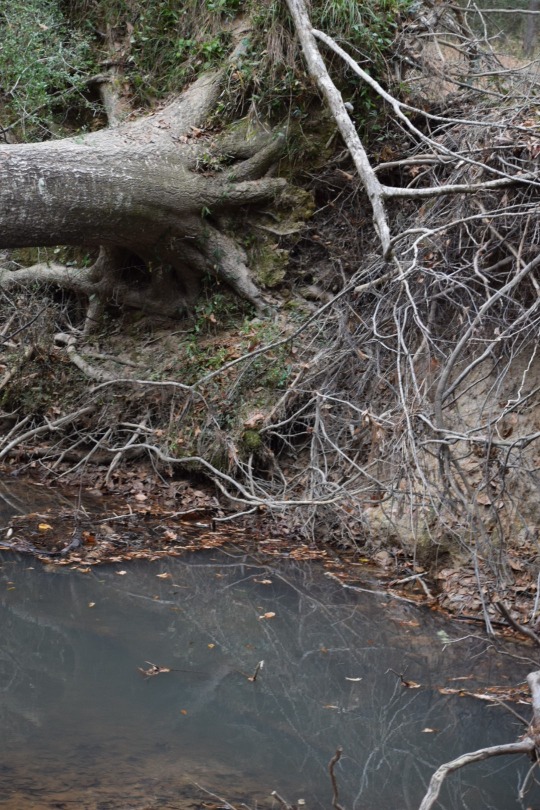


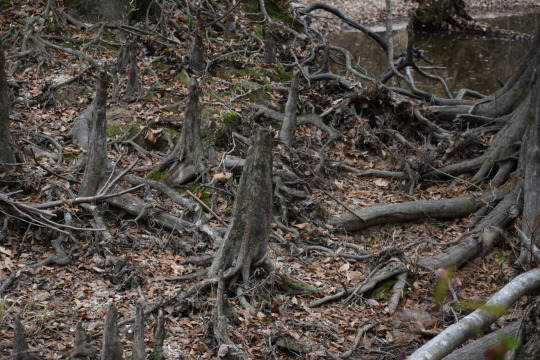
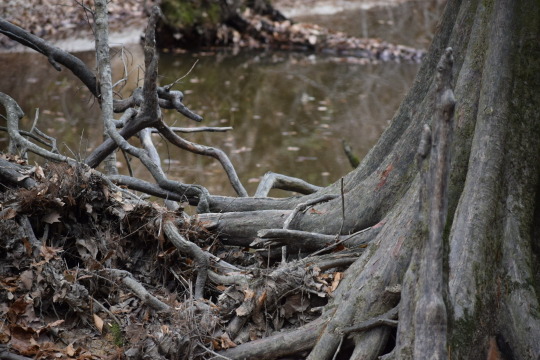



7 notes
·
View notes
Text
So I don’t have pictures, but Dale and I floated the Bogue Chitto river today with some roller derby friends. Felt good to reconnect with the outside world, to do some plant identification, and use my river skills. I’m gonna confess that it was strange to see people freak out when they were gonna go under a tree or float into a log. I started calling it “exfoliation” when we went under low-hanging branches to calm people down.
I even had some spiders hitch a ride with me for much of the way down. Two incredible, thin-bodied dragonflies rode on my legs or a while; they were black with bright turquoise heads and tail tips. In a world where humans are doing so much wrong, it felt nice to be perceived as non-threatening to a few insects.
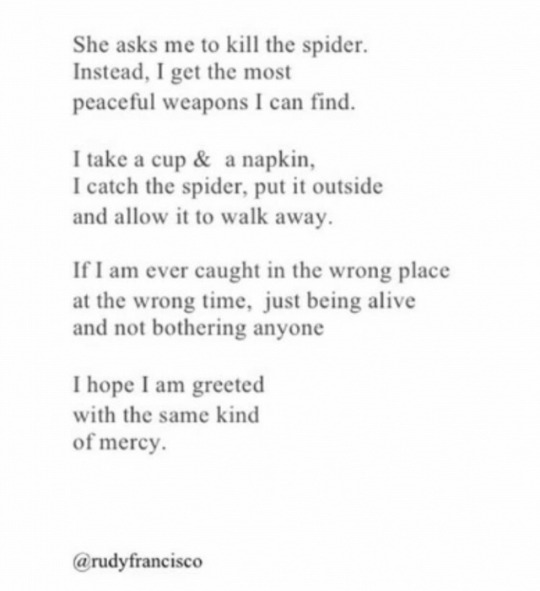
But don’t nobody know how to paddle a river... River literacy. Is that a thing. Should be a thing.
3 notes
·
View notes
Text

Hiking in Bogue Chitto State Park
1 note
·
View note
Text
Mississippi Shooting - 8 dead including Deputy
Mississippi Shooting – 8 dead including Deputy
Lincoln county, Mississippi – Eight people are dead this morning, including a Lincoln County Deputy, after a suspect began a shooting spree at three separate homes near Brookhaven on Saturday night. The suspect is in custody. Police are having to process three separate crime scenes. The Deputy reportedly responded to a call of a resident wanting the suspect removed from their property. The Deputy…
View On WordPress
2 notes
·
View notes
Photo

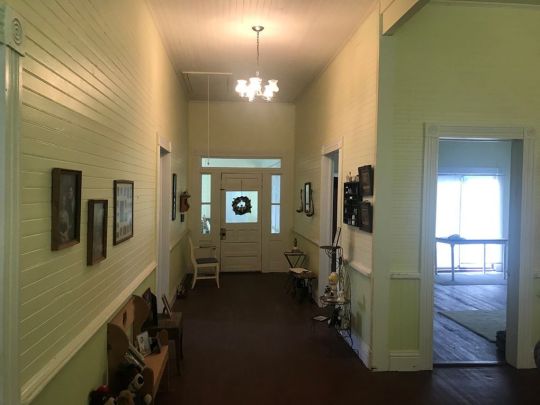
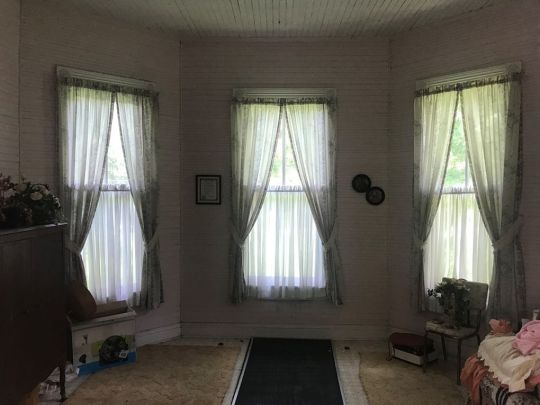
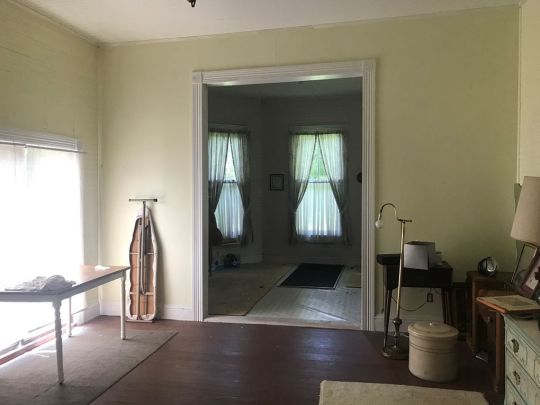

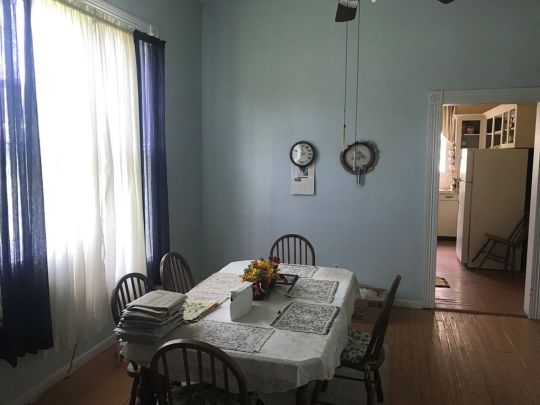

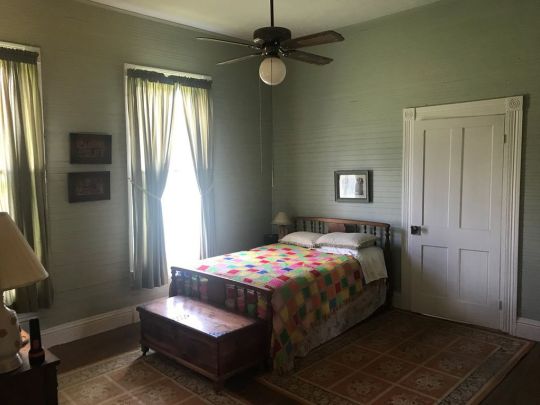
Bogue Chitto, Mississippi
built in 1910
52 notes
·
View notes
Text
He hands you the accordion and you squeeze out notes like seasoning— sprinkle of bluegrass here, tablespoon of zydeco there, and the two of you slide further south. How Tennessee turns Mississippi, Louisiana; mountains melt into bayou.
Place cooked tofu slices on a plate lined with paper towels to blot out excess oil.
Place names like spices, recipe as map: mix in Osceola, Jericho, Senatobia, Bogue Chitto, Magnolia, Tangipahoa, Ponchatoula, Nouvelle Orleans. And always that Big Muddy, that quicksilver river, silt between your teeth just like the grit on unwashed greens.
How this meal is haunted by other dinners you’ve shared. Dinner of hors d’oeuvres stolen from posh nightclubs, food full of words crisp as new money—watercress, bruschetta, applewood smoked bacon with the soggy fat cut off; dinner of running from the doorman when he realized you were empty pockets, splashing all the oily puddles on Water Street. Dinner of mud prints on the kitchen floor, his boots, your bare feet; dinner of whatever you could throw together, soup of expired miso, remnants of two-day-old rotisserie chicken, basil from your windowsill garden.
–Jessie Lynn McMains, from “Country-Fried Tofu and Collard Greens for Two” (as appears in Juke Joint #10)
17 notes
·
View notes
Text
Meet Redoshi: The Last Enslaved African To Survive Forced Migration to the U.S. On A Slave Ship
A researcher at Newcastle University in Great Britain has pieced together the history of a remarkable woman believed to be the last survivor of the trans-Atlantic slave trade ships that arrived in the U.S.
Redoshi, later known as Sally Smith, was kidnapped from a village in modern-day Benin, West Africa, and brought to the United States, where she lived and died on the Alabama plantation where she was enslaved, according to research by Dr. Hannah Durkin.
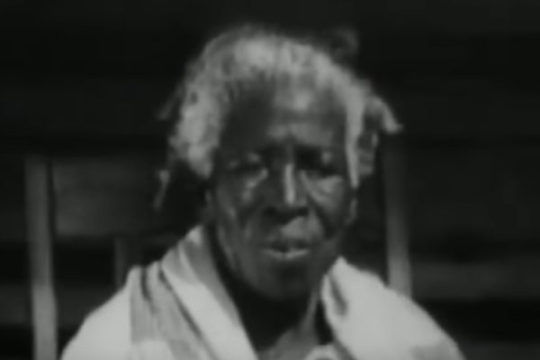
Using firsthand accounts from various sources and U.S. Census records, Durkin was able to retell Redoshi’s unique story, from the time she was forced aboard a slave ship at the tender age of 12 and later sold as a child bride, to the moment she set foot on the plantation she would call home for 70 years. She would survive the Civil War and the Great Depression before dying in 1937.
Durkin called it “shocking” that Redoshi’s story was so close to living memory.
“It was thought that this woman was lost to history,” she told The New York Times in an interview.
Durkin’s findings were published in the journal Slavery & Abolition last week and chronicle Redoshi’s life and struggles. She is believed to have been taken from a West African village before being shipped to the United States aboard the Clotilda, the last recorded slave ship to arrive to the U.S. Durkin said Redoshi described her life as “peaceful” before she was seized by men of a neighboring tribe and brought to slave traders.
Famed Black author Zora Neale Hurston first discovered Redoshi during research for her novel “Barracoon: The Story of the Last ‘Black Cargo,‘ from which Durkin “wove together bits and pieces of Redoshi’s life that were found in Hurston’s unpublished writings and an interview she gave to The Montgomery Advertiser,” according to the Times. Durkin said some details of Redoshi’s life had also been documented in the 20th century when historians and civil rights activists started recording the experiences of enslaved Blacks.
Using census data and public records, Durkin learned that Redoshi had lived in Selma, Alabama, until her death at 89 or 90 years old. A man named Cudjo Lewis, who also arrived to the U.S. on the Clotilda, was long thought to be the last survivor of the slave trade, but Durkins’ research shows that Redoshi had lived much longer.
When she arrived to the U.S., she was bought by a local banker and given the name Sally Smith. Her master would later make her a child bride to an enslaved man.
“I was 12 years old and he was a man from another tribe who had a family in Africa,” Redoshi is quoted as saying to civil rights leader Amelia Boynton Robinson, who published a memoir. “I couldn’t understand his talk and he couldn’t understand me. They put us on block together and sold us for man and wife.”
Slavery was abolished five years after her arrival, and Redoshi became a free woman. Although she was emancipated, she chose to remain on the plantation with the Smiths, which was a common practice among newly-freed slaves. From Boynton Robinson’s memoir, Durkin said she was able to deduce that Redoshi later owned land in Bogue Chitto, Alabama, where an estimated 6,000 acres of land were owned and operated by Black Americans.
Like most, Redoshi suffered a regime of beatings and whippings during her enslavement, but Durkin’s research also points to glimpses of her strength and resilience. For instance, she managed to maintain her African heritage and identity, and even passed some of native language down to her daughter.
“It’s only one voice but this gives us a semblance of a voice for those who were otherwise lost,” Durkin said.
158 notes
·
View notes
Photo
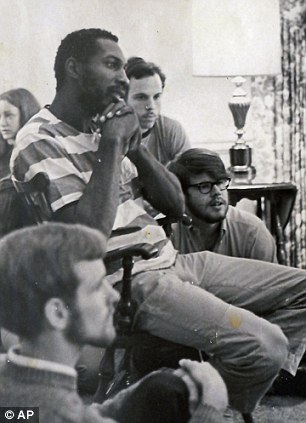

Ray Robinson was in Washington in 1963 for Martin Luther King Jr’s “I Have a Dream” speech. In 1964, he attended the funeral of three civil rights workers killed in Mississippi. And in 1968, Robinson was among the protestors who set up in resurrection city. Ray Robinson certainly had roots in the civil rights movement.
In April of 1973, Robinson travelled to Wounded Knee to stand alongside native Americans in their fight against injustice. While there, he called his wife back home and told her: “This could be the spark that lights the prairie fire.” Robinson never made it back home to Bogue Chitto, Alabama. He was declared legally dead but his body was never uncovered and very little is known about what happened to him while at Wounded Knee.
In 2014, the FBI said that Robinson was killed at Wounded Knee and that the American Indian movement were responsible. The documents released fall short of pinpointing where Robinson was as buried and do little to fulfil his family’s wishes to have his remains brought back home.
483 notes
·
View notes
Text
Bogue Chitto, Mississippi Consumer Credit Counseling Service | (888) 551-1270
https://youtu.be/zlN5GucyCDo
youtube
Bogue Chitto, Mississippi Free Consumer Credit Counseling Service call (888) 551-1270 Credit Repair, Bankruptcy Counseling, Foreclosure Prevention, Student Loan Debt Consolidation, Wage Garnishment and Vehicle Repossession solutions, Mortgage Loan Modification, and Debt Settlement through chapter 13. Bogue Chitto, Mississippi Credit counseling (888) 551-1270 starts with the parent and may include intermediaries later in life empowered by the individual debtor to act on their behalf to negotiate with creditors and resolve debt that is beyond a debtor’s ability to pay. Credit counseling is a generic name and is not a brand name owned or controlled by any agency or company.
Bogue Chitto, Mississippi Consumer credit counseling services (888) 551-1270 are provided by attorneys, accountants, finance and tax professionals, for-profit, and non-profit credit counseling companies. Regulations on credit counseling and credit counseling agencies varies by country and sometimes within regions of the countries themselves. In Bogue Chitto, Mississippi individuals filing Chapter 13 bankruptcy are required to receive counseling from a designated credit counseling agency.
https://www.youtube.com/channel/UCJfdQaVFeXPR-epOQ66hThg/about
from Bogue Chitto, Mississippi Consumer Credit Counseling Service | (888) 551-1270 via Bogue Chitto, Mississippi Consumer Credit Counseling Service | (888) 551-1270 November 13, 2019 at 11:47PM Copyright © November 13, 2019 at 11:47PM
0 notes